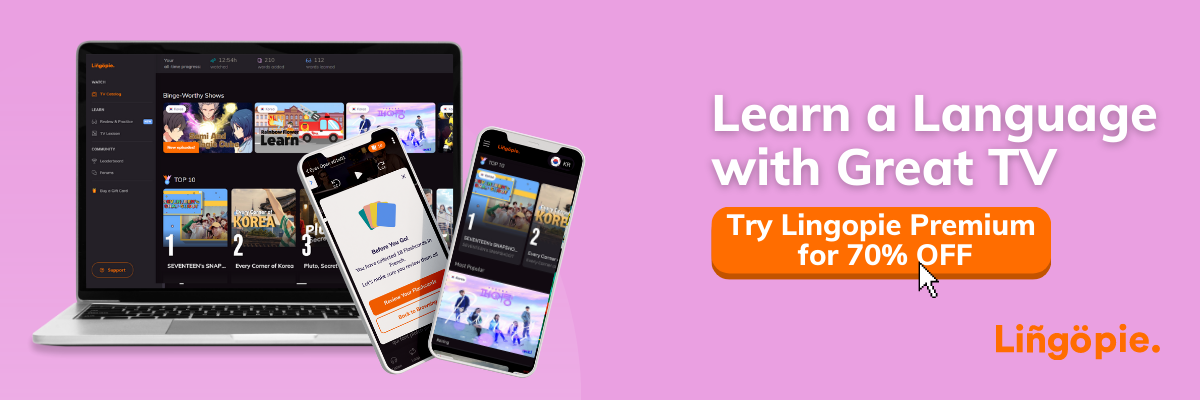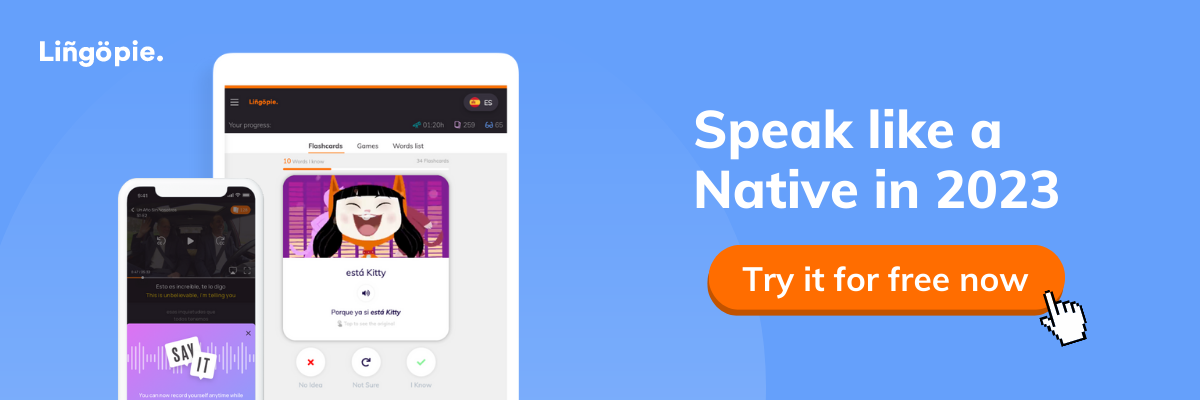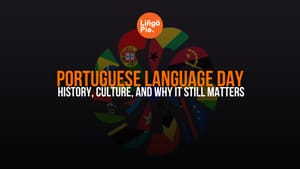If you're planning a trip to a Portuguese-speaking country, learning the language can enhance your travel experience. While you're exploring the beaches and vibrant cities of Brazil, you'll want to be able to communicate with the locals in their native language.
This will make your trip more meaningful and enjoyable. So, we'll provide practical tips and resources for beginner learners to get started learning Portuguese.
We'll discuss resources for learning Portuguese, immersion in the language, vocabulary, and grammar, and finally, tips for visiting Brazil.
By learning the basics of Portuguese vocabulary and grammar, as well as immersing yourself in the language and culture, you can master Portuguese for your next adventure.

Brazilian Portuguese Language Learning Resources
There are many resources available for beginners to learn Portuguese. Language learning apps like Rocket Portuguese and Babbel offer fun and interactive lessons that cover the basics of Portuguese grammar and vocabulary.
There are also many Portuguese language podcasts and YouTube channels, such as "PortuguesePod101" and "Easy Portuguese," which provide audio and video lessons to help improve your listening and speaking skills.
If you prefer a more formal learning process, there are Portuguese language courses and tutors available online and in person. Check out the Foreign Service Institute for language learning course information.
Additionally, watching Portuguese movies and TV shows with subtitles can help you improve your comprehension and vocabulary in a fun and entertaining way. Check out Lingopie, a streaming service that boasts a lot of Brazilian Portuguese content for binging, as well as content in 7 other languages.
Beginners can use English subtitles, while intermediate students should opt for Portuguese subtitles. This will boost your listening skills and comprehension.
You can also choose to watch European Portuguese content on Lingopie. The platform labels content as either European Portuguese or Brazilian Portuguese so you can make an informed choice. If you want to learn Brazilian Portuguese pronunciation and vocab, it is best to stick to content made in Brazil.
Immersion in Brazilian Portuguese
Immersion in the rich culture of Brazil will help you to absorb the language and pick up the nuances of Brazilian culture. From dining culture to slang words and societal beliefs, there is a lot to learn about Brazil.
For learners interested in Latin American Portuguese, video and audio lessons can be a great resource for improving comprehension and pronunciation skills. You should also practice writing and speaking in Portuguese, and seek out opportunities to practice with native speakers.
One of the keys to mastering Portuguese is regular listening and speaking practice. This can be achieved by finding language exchange partners with whom you can hold basic conversations and learn key phrases.
When you practice speaking with a native Portuguese speaker, you can receive instant feedback on your accent, word choice, and fluency. Moreover, they will be able to provide simple grammar explanations and suggestions for sounding more natural.
Finally, traveling to Portuguese-speaking countries provides a great opportunity to practice the language in real-life situations. By engaging with locals, ordering food, and navigating social situations in Portuguese, you can gain confidence and improve your fluency.
Basic Vocabulary in Brazilian Portuguese
Now that you know how to learn Portuguese, let's briefly explore some basic words and phrases so you can start working on your conversational skills today.
When learning Portuguese, it's helpful to start with basic phrases and common words to build your vocabulary. Finding a learning style that suits you can help you stay motivated and make progress in your language learning.
You may want to make Portuguese word flashcards or else record yourself saying new Portuguese vocabulary words and listen to the audio until it sinks in.
You will need to learn Portuguese vocabulary for greetings and introductions. This will help you to bond with native speakers on your travels.
For instance:
Olá - Hello
Bom dia! - Good morning
Como vai? - How's it going?
Vou bem. E voce? - I'm fine. And you?
Adeus - Goodbye
It's also important to know basic phrases for speaking Portuguese in a restaurant.
For example:
Uma água, por favor - A water, please
O menu, por favor - The menu, please
A conta por favor - The check, please
Obrigado/a - Thank you (masculine/ feminine)
And for travel in general:
Bilhete - Ticket
Estação - Station
Quarto - Room
Reserva - Reservation
Even these basic words can make all the difference when you want to speak Brazilian Portuguese with a native speaker. As you learn more sentence structures and deepen your vocabulary, you will be able to form more complex Portuguese phrases with these useful Portuguese words.
A Note on Grammar
Another vital part of learning Portuguese is getting to grips with the grammar. You will note some similarities with English grammar, as well as some significant differences.
There is no one way to learn Portuguese grammatical rules and structures. You can use language apps, learn through immersion in Portuguese movies, or pay for formal grammar lessons with a Portuguese teacher. Portuguese lessons are the most efficient way to study Portuguese grammar.
Like other Romance languages, in Portuguese, articles come before nouns and indicate the gender and number of the noun. There are definite articles (the) and indefinite articles (a/an/ some). Nouns in Portuguese also have gender (masculine or feminine) and number (singular or plural).
Verbs in Portuguese are conjugated based on the subject and tense of the sentence. There are regular and irregular verbs, and the conjugation changes depending on the tense. Getting your head around conjugation patterns is a key element of learning Portuguese and creating grammatically correct Portuguese phrases.
Tips for Traveling to Brazil
Portuguese is the official language of Brazil and Portugal, as well as Angola, Cape Verde, Guinea-Bissau, Mozambique, and São Tomé and Príncipe. It is also the co-official language in East Timor, Equatorial Guinea, and Macau. It is one of the most widely spoken languages in South America.
Remember that there are some differences between European Portuguese and Brazilian Portuguese, despite them being more or less the same language. While a Brazilian person and a Portuguese person could communicate effectively, there are various words specific to Brazil, as well as differences in pronunciation and culture.
When traveling to Brazil, it's important to be aware of cultural norms and etiquette. For instance, in Brazil, hugging and kissing on the cheek are common forms of greeting. Moreover, unlike in Portugal, in Brazil, it's acceptable to start eating as soon as your own dish arrives; you do not need to wait.
To show respect and appreciation for Brazilian culture, it's helpful to learn a few basic Portuguese phrases and to try local foods. When interacting with locals, it's important to be polite and respectful.
If you do not understand something said by native speakers, you can ask for the word's definition. This shows your willingness to learn and integrate.
Read also: Learn Portuguese Curse Words (with Context)
By immersing yourself in the culture and being open-minded, you can gain a deeper appreciation for Portuguese-speaking countries and their people. Learn Brazilian Portuguese customs, traditions, and the language and begin exploring Latin America.
FAQs About Learning Brazilian Portuguese
Let's look at some frequently asked questions by people who want to learn Portuguese.
What's the best way to learn Portuguese at home?
If you're interested in learning Brazilian Portuguese at home, there are many resources available to help you on your language-learning journey.
One popular language-learning app that you can use to learn Portuguese is Duolingo, which offers lessons on basic Portuguese words and phrases. You can also find Portuguese lessons and courses online, or through a local language school or tutor.
How long does it take to learn Portuguese?
As with any foreign language, learning Brazilian Portuguese takes time and effort. But with the right resources and mindset, you can make progress in your ability to speak and communicate in this beautiful language.
Practice Portuguese regularly and immerse yourself in the culture, and you should get to the intermediate level in just a couple of months.
Is Portuguese easy to learn?
For English speakers, Portuguese is reasonably easy compared to many other languages. If you speak English, you will note some cognates between Portuguese and English. You can engage with Portuguese content regularly to help you learn, such as movies or books with the English translation on the opposite page.
This will deepen your vocabulary and boost your reading skills. Literature provides high-quality exposure to slang and idiomatic Portuguese phrases.
How can I learn to speak Portuguese faster?
If you want to learn to speak Portuguese faster, practice regularly and engage with native speakers. A Portuguese course can also provide you with a structured approach to learning the language, with lessons on grammar, vocabulary, and pronunciation.
With practice and dedication, you can gain fluency in speaking and understanding Brazilian Portuguese.

Summing Up: Learn Brazilian Portuguese for Your Next Adventure
Now that you have been introduced to Brazilian Portuguese learning resources, vocabulary, and grammar, you are ready to start immersing yourself in the language and culture of Brazil.
Remember to focus your learning on Brazilian Portuguese rather than European Portuguese, if speaking Brazilian Portuguese is your end goal.
For beginners, as well as intermediate learners and advanced learners, it's important to continue challenging yourself and seeking new opportunities to learn and practice your target language.
Luckily, the language-learning industry is rich in online resources for language learners. Head over to Lingopie to begin your Brazilian language journey and start speaking Portuguese today.





![Learn Spanish with La Casa de Papel [Money Heist] on Netflix](/blog/content/images/size/w1200/2023/05/Spanish-1--6-.png)


![How To Learn Portuguese Fast? [Best 2025 Guide]](/blog/content/images/size/w300/2024/08/Lingopie-2.png)
